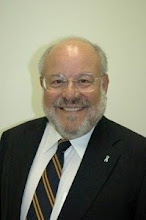The
mothers are making an impact!
A
phenomenon in environmental activism in recent years has been the emergence of
grassroots organizations “powered by the voices of mothers, dedicated to
protecting children in global communities,” as one group, The Mothers Project,
describes itself. http://www.mothersforsustainableenergy.com/
The
Mothers Project, founded and headed by Angela Monti Fox, is based in New York City
and global in scope. Fox is the mother of Josh Fox, the filmmaker who exposed
the dangers of fracking in his award-winning documentaries Gasland and Gasland
2. Indeed, taking on fracking is a major focus of The Mothers Project.
This
week, the anti-environmental, arch-conservative entity named The Independent
Women's Forum is staging a panel discussion in Manhattan to try to counter the
mothers’ movement. It is titled “From Helicopter to Hazmat: How the Culture of
Alarmism is Turning Parenting into a Dangerous Job.” The group, which gets its
funding from right-wing foundations and other conservative interests including
the Koch Brothers, got its start in 1992 as Women for Judge Thomas defending
the nomination of Clarence Thomas to the U.S. Supreme Court. It fights feminist
groups, promotes access to guns and has taken to denying global warming.
http://www.rightwingwatch.org/content/independent-womens-forum
Also
involved in the event Thursday is the American Council on Science and Health, financed
by polluting industries and long described as an industry front group. Its
specialty has been issuing reports denying health damage caused by
environmental pollutants, notably pesticides and other toxic chemicals.
http://www.motherjones.com/politics/2013/10/american-council-science-health-leaked-documents-fundraising
Proclaims an
announcement: "’Parents are bombarded with alarmist messages on a daily
basis about how the food they eat, the habits they practice and the household
products they use threaten their health and the health of their children,’ says
Julie Gunlock, event moderator and director of Independent Women Forum’s
Culture of Alarmism project. Rather than make women feel more informed, the
onslaught of alarmist information makes moms (and dads) feel guilty, confused,
even angry.” http://www.iwf.org/
Comments Angela
Fox Monti about the event: “I think this is serious proof that we are making an impact. I have
no doubt that they know about The Mothers Project, ClimateMama, Toxic Baby, Moms
Clean Air Force, etc., etc.” Organized moms, she declares, are seen as “a threat
because they know politicians tend to cower when mothers show up!”
Monti points to
the increase in major diseases “in both children and adults—now being seen by
the scientific community as a result of environmental impacts. No longer can we
look at simply defective genes for the rise in all cancers, new cancers,
autism, ADHD, childhood diabetes and obesity. New research points to
environmental impact on embryonic development that will span several
generations and can be considered a pandemic when 25 percent of the global
population born today will be affected by deleterious environmental impacts.”
Anna Grossman, founder and director of HRP Mamas/The Hudson River Park
Mothers Group (http://hrpmamas.clubexpress.com/) says: "In the absence of adequate
legislation, and as a mother of two young children, I look to reputable medical
organizations and research institutes such as the Mount Sinai Children's
Environmental Health Center for guidance on keeping my children safe from
unregulated chemicals. I wouldn't get medical and safety information from a
chemical industry front group or from authors who appear to disregard plain
science.”
“I find nothing alarmist in being empowered with the
knowledge that EPA is simply unable to protect us from thousands of chemicals,”
she says. “The EPA has acknowledged this and it's a known fact. No one is
panicking. We are calling for action. Those are two distinctly different
things. Trying to paint mothers like me as hysterical is an old and tired
stereotype. Parents are agents for change and a tremendous market force. It
would seem the chemical industry, as the tobacco industry before it, is
terrified of the power of parents to educate their children about companies
that don't value their future health or that of their planet. Europe has
enacted REACH [Regulation on Registration, Evaluation, Authorization and
Restriction of Chemicals] legislation. Why should the USA be left behind?”
Says Bobbi Chase
Wilding, deputy director of Clean and Healthy New York (http://www.cleanhealthyny.org/) : "This
is clearly a response from an industry feeling the pressure from parents. They
want us to go back to sleep. We’re outraged when we learn there’s no law
against putting toxic chemicals in baby products. It happens all the time, and
they don’t have to be listed on the label.”
“That’s what’s
making us impotent: lack of information, lousy laws, and actions by chemical
industry front groups like the American Council on Science and Health,” says
the mother of two. “While it's their message that health advocates are making
people feel impotent, it's exactly presentations like this that are designed to
disempower people. There is so much parents can do. There’s a lot of good
information that empowers parents to make safer, smart choices. Our message is:
don't panic, take action."
A “featured
panelist” at the event will be Josh Bloom of the American Council on Science
and Health, its activities well-detailed in the book by Sheldon Rampton and John
Stauber, Trust
Us, We're Experts: How Industry Manipulates Science and Gambles with Your
Future. http://www.prwatch.org/books/experts.html

